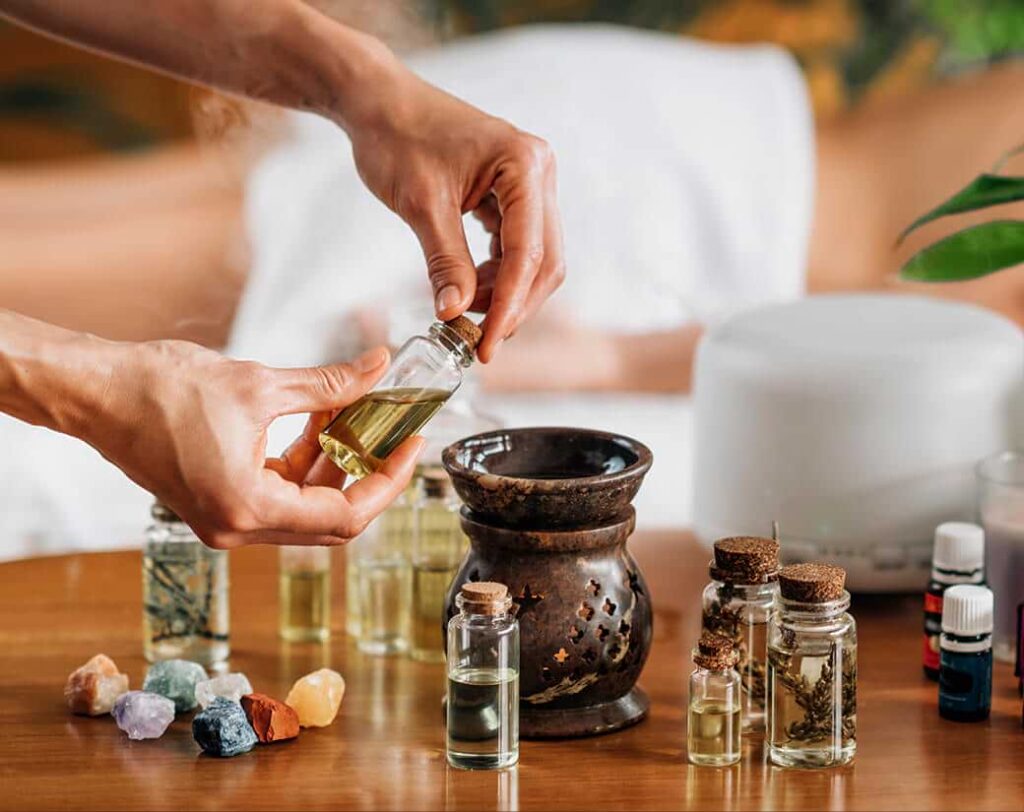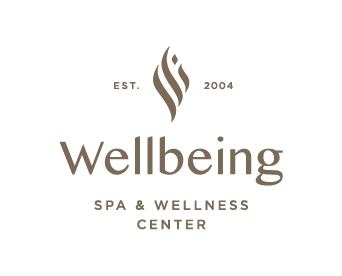
Balancing Body and Mind: How Spa Treatments Support Mental Health and Emotional Wellbeing
In today’s fast-paced world, where screens dominate our attention and stress levels are constantly on the rise, taking time to restore balance between body and mind is no longer a luxury — it’s a necessity. Modern wellness has evolved beyond fitness and diet. Increasingly, people are turning to mental health spa programs and wellbeing treatments designed not only to relax the body but also to rejuvenate the mind.
This guide explores how spa experiences contribute to emotional wellbeing, the science behind relaxation therapy, and practical ways to integrate mindfulness, stress reduction, and sensory healing into daily life.
The Rise of Mental Health Spas

From Luxury to Lifestyle
A decade ago, spas were mostly seen as indulgent escapes — places to pamper oneself for a day or two. Today, they are becoming essential destinations for people seeking emotional recovery, mental clarity, and personal growth.
The shift toward mental health spas represents a broader change in how society views wellness. Travelers are no longer satisfied with physical relaxation alone; they want holistic experiences that nurture their mental and emotional states as well.
What Makes a Mental Health Spa Different?
Unlike traditional spas that focus primarily on beauty treatments, mental health spas offer immersive programs that integrate therapy, mindfulness, nutrition, and bodywork. Guests can expect:
- Guided meditation and breathwork sessions
- Stress management workshops
- Aromatherapy and hydrotherapy for relaxation
- Nutrition counseling and sleep support
- Access to psychologists or wellness coaches
The goal is to create a peaceful environment where emotional healing and mental renewal are just as important as physical rest.
How Spa Treatments Influence Emotional Wellbeing

1. The Science of Relaxation Therapy
At the heart of every spa experience lies relaxation therapy — a set of treatments that calm the nervous system and activate the body’s natural healing processes.
Techniques like massage, hydrotherapy, and aromatherapy help reduce cortisol (the stress hormone) while increasing serotonin and dopamine — the body’s “feel-good” chemicals.
This hormonal balance directly impacts mental health by:
- Reducing anxiety and depression symptoms
- Improving mood stability
- Enhancing emotional resilience
- Supporting better sleep patterns
A single relaxation therapy session may provide temporary relief, but consistent visits to a mental health spa can lead to lasting improvements in both physical and emotional wellbeing.
2. The Connection Between Touch and the Mind
Massage therapy — a cornerstone of spa treatments — has profound psychological benefits. Research shows that gentle physical touch triggers the release of oxytocin, often called the “bonding hormone.”
This hormone fosters feelings of safety, calm, and connection — essential elements for emotional wellbeing.
Beyond physical relaxation, massage promotes mindfulness. As you focus on the rhythm of touch and breath, the mind quiets, letting go of intrusive thoughts and emotional tension.
3. Aromatherapy and Emotional Healing

The use of essential oils in spa rituals isn’t just about pleasant scents — it’s a powerful form of wellbeing treatment.
Each oil interacts differently with the brain’s limbic system, which regulates emotions and memories.
Some popular oils and their effects include:
- Lavender: Eases anxiety, supports restful sleep, and calms the nervous system.
- Bergamot: Elevates mood and combats emotional fatigue.
- Eucalyptus: Clears the mind and enhances focus.
- Ylang-Ylang: Balances mood swings and reduces irritability.
- Sandalwood: Deepens meditation and inner peace.
In spa settings, aromatherapy is often combined with massage or hydrotherapy to maximize relaxation and emotional release.
4. Hydrotherapy and the Power of Water
Water has long been a symbol of purification and renewal. Hydrotherapy — treatments using warm baths, saunas, or mineral pools — promotes circulation, reduces muscle tension, and soothes the mind.
Warm water immersion encourages parasympathetic nervous system activation, often referred to as the “rest and digest” mode. This physiological response slows the heart rate, lowers blood pressure, and creates a deep sense of peace — crucial for mental health spa recovery programs.
Some resorts even offer sound baths and floating therapy, which simulate sensory deprivation to help guests achieve a meditative state.
The Role of Mindfulness in Spa Wellness

1. Reconnecting Body and Mind
Many wellbeing treatments today emphasize mindfulness — being fully present in the moment.
Whether through guided meditation, yoga, or mindful breathing, these practices teach individuals to observe their emotions without judgment.
This awareness allows guests to release stress more effectively, manage anxiety, and regain control over their emotional balance.
In a mental health spa, mindfulness is not an add-on — it’s the foundation upon which every treatment is built.
2. Yoga and Meditation as Therapeutic Tools
Yoga harmonizes breath, movement, and stillness, improving not only physical flexibility but also emotional clarity.
When combined with meditation, yoga becomes a form of relaxation therapy that helps calm intrusive thoughts and strengthen focus.
Spa retreats often include sunrise yoga sessions overlooking the ocean or guided evening meditations — moments that encourage introspection and gratitude.
Regular practice enhances sleep quality, reduces emotional reactivity, and promotes self-compassion.
3. Breathing and Emotional Regulation
Simple yet profound, breathwork is another essential component of wellbeing treatments.
Controlled breathing exercises regulate the autonomic nervous system, stabilizing emotions and grounding the body in times of stress.
Techniques like box breathing or alternate nostril breathing are frequently taught in spa environments to help guests carry mindfulness into daily life.
Popular Spa Treatments for Mental and Emotional Balance

To fully understand the power of relaxation therapy, it’s helpful to look at some of the most effective treatments offered at mental health spas around the world.
1. Hot Stone Massage
Smooth, heated stones are placed on key pressure points to melt away tension and promote circulation.
The gentle heat provides comfort that soothes both muscles and the mind, making it ideal for stress relief.
2. Sound Therapy
Also known as sound healing, this therapy uses gongs, singing bowls, or tuning forks to restore vibrational balance.
The frequencies influence brain waves, guiding the mind into deep relaxation and sometimes even meditative states.
3. Reiki and Energy Healing
Reiki practitioners use gentle hand placements to balance the body’s energy fields.
Though subtle, the results can be profound — guests often report feeling lighter, emotionally clearer, and more centered.
4. Herbal and Mud Wraps
Beyond skincare benefits, body wraps with natural clays, seaweed, or herbs detoxify the body and enhance relaxation.
The quiet stillness during these treatments allows for self-reflection — a rare opportunity to simply “be.”
5. Floatation Therapy
Also known as sensory deprivation, floatation involves lying in a tank filled with warm saltwater.
Free from external stimuli, the body achieves a zero-gravity sensation, while the mind drifts into a meditative calm.
Studies suggest float therapy reduces anxiety, improves sleep, and enhances creativity.
How Spa Experiences Complement Mental Health Care

Spa treatments should not replace professional mental health therapy — but they can greatly complement emotional wellness programs.
When combined with psychological support, exercise, and healthy nutrition, spa experiences create a comprehensive framework for healing.
1. Reducing Burnout
For professionals facing chronic stress, wellbeing treatments offer immediate relief and teach long-term coping mechanisms through relaxation and mindfulness.
2. Supporting Recovery from Anxiety or Depression
Holistic spa environments promote emotional safety and connection, often reducing the sense of isolation that accompanies mental health struggles.
3. Enhancing Self-Awareness and Growth
Through reflective practices, spa guests reconnect with themselves, rediscovering personal values, desires, and boundaries — key steps in sustainable emotional health.
Creating Your Own Spa-Inspired Mental Health Routine
Even if you can’t visit a mental health spa regularly, you can bring elements of relaxation therapy into your home:
- Start your day with mindful breathing or light stretching.
- Use essential oils like lavender or sandalwood to create a calming space.
- Schedule digital detox evenings — no phones, just soft music and candlelight.
- Practice gratitude journaling before bed.
- End the week with a warm bath and slow, deep breathing.
Consistency matters more than duration — a few intentional minutes each day can dramatically improve emotional wellbeing.
Global Spa Destinations for Emotional Healing
If you’re inspired to plan your next wellbeing retreat, here are some destinations known for their mental health spa programs:
- Bali, Indonesia: Offers jungle yoga retreats and holistic healing sanctuaries.
- Sedona, Arizona (USA): Famous for energy vortexes and mindfulness centers.
- Ubud, Indonesia: Known for detox spas and meditation resorts.
- Hurghada, Egypt: Coastal spas offering Red Sea hydrotherapy and relaxation therapy infused with desert serenity.
- Thailand: Integrates Buddhist mindfulness with Thai massage and herbal treatments.
Each destination combines ancient wisdom with modern techniques to create environments that nurture emotional and spiritual renewal.
The Future of Spa and Mental Wellbeing

As awareness grows around the importance of mental health, spa and wellness tourism will continue evolving.
We’re moving toward integrative experiences where science meets serenity — environments that prioritize connection, self-awareness, and sustainable healing.
From biohacking recovery methods to AI-driven stress tracking, the next generation of mental health spas will blend technology with timeless relaxation rituals.
But one thing will remain constant: the human need for peace, touch, and stillness.
Conclusion: Healing Beyond the Surface
Spa experiences are far more than temporary indulgences. They represent an ancient truth — that healing the body and soothing the mind are deeply interconnected.
Whether through massage, meditation, or aromatherapy, every wellbeing treatment is an opportunity to pause, breathe, and reconnect with yourself.
In an age defined by speed and noise, the quiet sanctuary of a mental health spa reminds us that true luxury is balance — a state where the body is rested, the mind is calm, and the spirit feels whole.






Leave a Reply